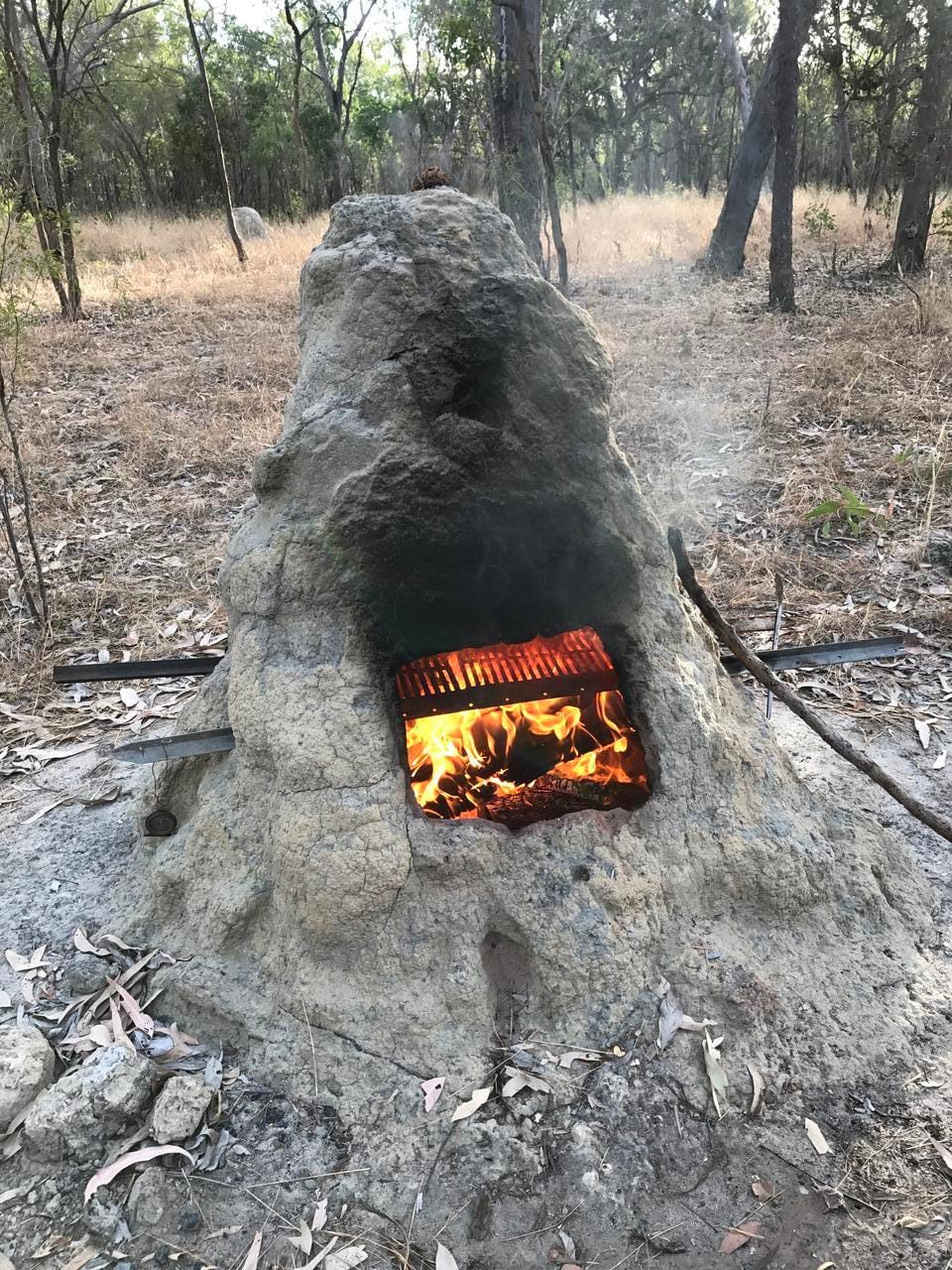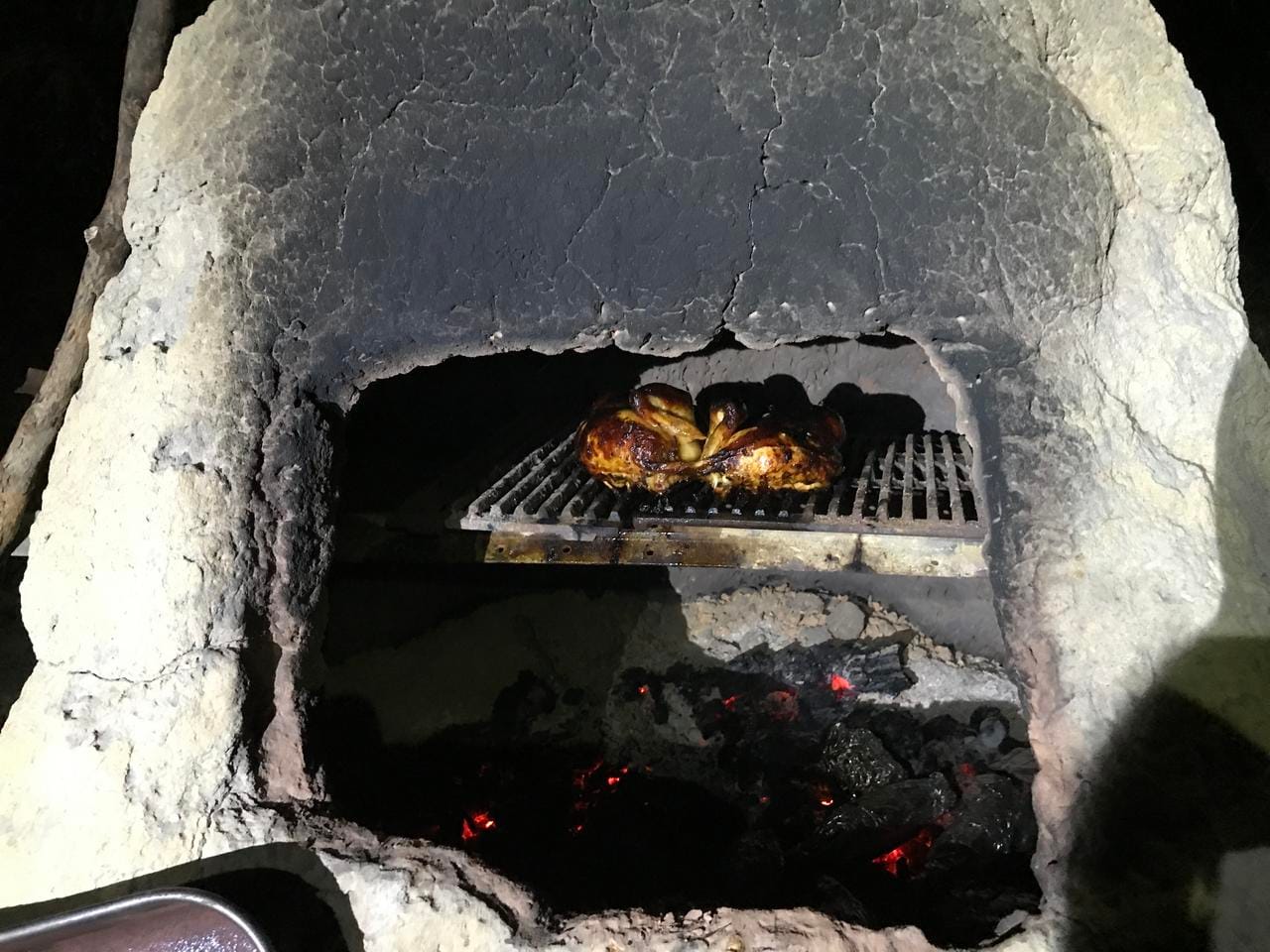Hunting
For safety, they left the cars near the Portuguese Officials station at Masajene, and moved their equipment, using bearers, some miles downstream from the house into country just north of the Sabi River.

Here there was an inland stretch of water about three quarters of a mile long and half a mile wide. The wild fowl were innumerable. The Africans said this particular land had never been shot over before. The evening flight was one of the biggest shows of wildfowl Edgar was ever to see. He managed to bag three wild geese with two barrels!
The problem was how to make birds keep sufficiently well for them to bring them back to Umtali. They decided not to shoot any more birds until the day before they left. Sumajeri, Edgar's cook, was extremely clever with them, cleaning them as soon as they were shot, leaving the feathers on. To deter all flies and other insects he covered them with pepper before he hung them up in the shade of the very heavy evergreen timber where there was a good current of air. In this way twelve brace were preserved in good eating condition to distribute amongst friends in Umtali.
They made a careful study of what game there was in the area. Edgar and Hayes-Hill split up each taking a newcomer under their wing. Edgar accompanied by John MacDonald located a very large herd of buffalo grazing in fairly open country, sighting them from three miles away. Unfortunately they were windward of them. They detoured several miles to get to leeward before trying to stalk within rifle range. Traveling very fast for a great part of the day they managed to get within one mile and get a fine view of the herd, but the country was so open it was not possible for them to get a single shot.
About half past four in the afternoon they had to call it a day and prepare to return to camp. They had not taken any food with them. Taking a short rest before starting home, John said he was so hungry that he did not think he could make it back to camp, which was at least twelve miles away, unless he had something to eat.
An African was carrying Edgar's shot gun. John managed finally to shoot an unfortunate dove. He dressed it there and then and toasted it over the fire on the end of a pointed stick.
Edgar had not realized before that hunger could have this effect in such a short time. He had trained himself to go, if necessary, for long periods with practically nothing to eat at all, and then make up for it when food was available by blowing himself out with a tremendous meal. He sent the African back to camp to report. Edgar and John kept one rifle and one shot gun and returned slowly together.
John was extremely nervous fearing they would lose their way as there was no trace of any recognized path or track. Edgar explained that navigation was much more simple than it looked because they had to go north in order to find the motor cars and camp, and there was a range of border hills visible to the west running north and south and were on the west side of the main track from Massangena to Espungabera, which would have their car tyre marks quite clearly on it as they had passed over that section previously. All they had to do was keep going north, watchful that they did not get too close to the border hills. When they hit the track they could walk the rest of the way back to camp along it.
They hit the road finally some eight hundred yards from the camp, which impressed John considerably. Sumajeri had a fine supper of roasted guinea fowl and fresh baked bread ready for them. After fourteen hours walking they fell on the meal like wolves.

Sumajeri performing his magic. Roasted guinea fowl fit for kings.
The historical novel Whitewashed Jacarandas and its sequel Full of Possibilities are both available on Amazon as paperbacks and eBooks.
These books are inspired by Diana's family's experiences in small town Southern Rhodesia after WWII.
Dr. Sunny Rubenstein and his Gentile wife, Mavourneen, along with various town characters lay bare the racial arrogance of the times, paternalistic idealism, Zionist fervor and anti-Semitism, the proper place of a wife, modernization versus hard-won ways of doing things, and treatment of endemic disease versus investment in public health. It's a roller coaster read.
References:
- Sir Edgar Whitehead's Unpublished Memoirs, Rhodes House, Bodleian Library, Oxford University, by permission.
- Photo credits: https://imgur.com/a/QrMzt (Edgar Whitehead's photographs from his Sabi River hunting trip were eaten up by white ants during his absence from Witchwood for the duration of WWII).

